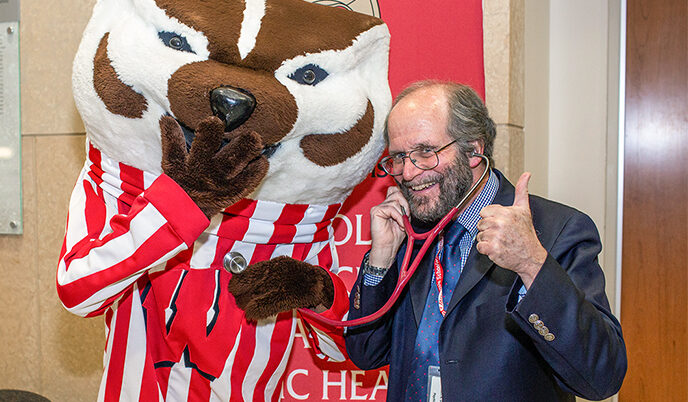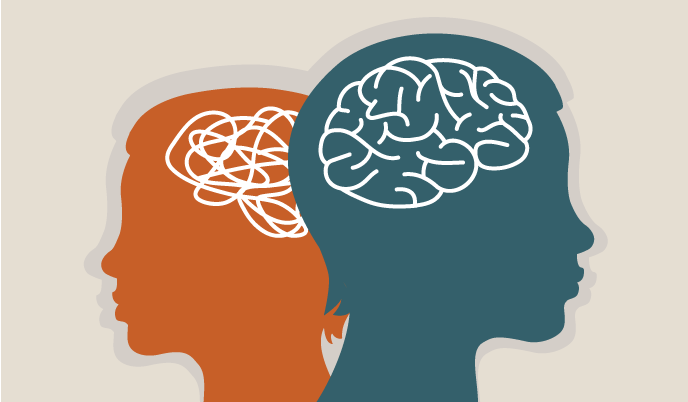
Dean Golden: A legacy of excellence
For 19 years, Golden has been leading as a bridge-builder and mentor, creating a collaborative, inclusive environment where ideas flourish and faculty and staff are empowered to lead.

Some childhood traumas may reduce adolescent mental health problems
An analysis of national data by University of Wisconsin School of Medicine and Public Health psychiatry researchers showed that the type of trauma a person experiences could be more impactful than the amount of trauma they encounter in youth.

Art Walaszek named associate dean for faculty affairs and development
Dr. Art Walaszek has been named the next associate dean for faculty affairs and development at the University of Wisconsin School of Medicine and Public Health.

UW researchers examine whether virtual reality can help teens regulate emotions
Cutting-edge research at the UW School of Medicine and Public Health is studying whether a new virtual reality video game can help teens self-regulate breathing and improve their mental health.

Three UW School of Medicine and Public Health faculty earn lifetime and career achievement awards
Lifetime and career achievement awards carry the weight of decades of discoveries and service. They are commonly the most prestigious awards given by professional societies and organizations.

UW Department of Psychiatry demonstrates effectiveness of telehealth in COVID-19 pandemic response
The COVID-19 pandemic placed limitations on face-to-face patient care, causing complexity for hospital psychiatric units. Undeterred, psychiatrists at the UW School of Medicine and Public Health quickly shifted to new ways of providing care.

Inflammation predicts response to anti-depression medication
Children and teens with bipolar depression responded better to an antipsychotic medicine if they had increased markers of inflammation in their blood, a new University of Wisconsin–Madison study shows.

Low genetic risk for ADHD may protect against negative life experiences
A recent study shows that people at low genetic risk for attention deficit hyperactivity disorder (ADHD) are not only less likely to have the disorder, they also have better than expected economic, health and behavioral outcomes in later life.

Prevention Research Center to focus on mother-baby health
Wisconsin’s first Prevention Research Center is coming to UW–Madison thanks to a five-year, $3.7 million grant from the Centers for Disease Control and Prevention.

Changing a single molecule in the brain can alleviate anxiety
A new study shows, for the first time in primates, that altering one particular molecule in a specific brain region can change “dispositional anxiety,” the tendency to perceive many situations as threatening. The finding provides hope for new strategies focused on intervening early in life to treat people at risk for anxiety disorders, depression, and related substance abuse.

Q&A: Marcia Slattery on Clinical Continuing Education
Marcia Slattery, M.D., MHSc, professor of psychiatry and pediatrics in the School of Medicine and Public Health, was recently appointed Clinical Continuing Education Director in the Office of Continuing Professional Development in Medicine and Public Health (OCPD). In this role, Dr. Slattery will serve as a champion for accredited interprofessional continuing education, providing physician leadership and clinical consultation for OCPD.

Can a sleep device give deep-space explorers a good night’s rest?
The Wisconsin Institute for Sleep and Consciousness (WISC) will be one of two sites for testing a device that might improve sleep and thus waking performance for people on long space voyages.